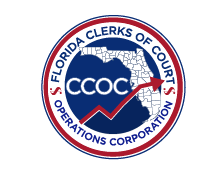You don’t know me. The process scares me. And all you want is to take more of what I don’t have. So, I don’t have time for you. People don’t care, why should I?
When a defendant steps before a judge awaiting sentence there are so many things to think about and so much to consider. But honestly, the most important words hinge on the possibility of jail time and the length of probation. The remaining litany of terms becomes a blur.

This includes court fine compliance. It’s not really about caring to pay as much as not hearing that the judge ordered it. And most defendants just want to get away from the courtroom to try and figure life out again.
While help exists down the hall or downstairs what is even more important for the sentenced defendant is just to get outside and away from all of this.
When it comes to compliance improvement the help needs to move closer to the action. Compliance service should begin at the conclusion of the sentencing hearing.
At the Clerk’s office in Palm Beach County, that’s exactly where they went. Louis Tomeo is the Criminal Court Director of the Palm Beach County Clerk’s Office and he summarized the project in a recent Compliance Summit for the Clerks of Court in Florida.
One of the things his office sought to understand was the effectiveness of payment plans. What they discovered was that Judges were not ordering plans. Only 8% were on a payment plan during 2013-14. Only 1 in 4 defendants not enrolled in a payment plan actually paid.
Part of problem was getting citizens to the clerks providing help. Court hearings were held on the ninth floor. To get compliance assistance required a trip down to the second floor. After waiting 3 to 4 hours in the courtroom most people choose to leave rather than go downstairs and wait in another line.
Today, two days a week , clerks set up their mobile work station in the broom closet adjacent to the courtroom to assist customers. The average wait time is about 4 minutes.
What caused the success?
The Palm Beach Clerks office began narrowing the trust gap between the compliance service team and citizens owing Court fines and costs. It wasn’t that they wiped out the obligation but instead carefully put together a plan and then followed up on progress.
Being immediately available is making a big difference in Palm Beach County and that same approach can work in courthouses just about anywhere. That’s the basis for changing compliance moving from demanding results to encouraging compliance. It continues with reminder notices for payments and options for completing plans such as community service hours in exchange for payments.
Here are some additional numbers that provide proof of improvement.
- Collection Rate Referrals dropped 36% from 2014-2018
- Total Assessment dollars referred to collections reduced by almost $17 million dollars, 48.15%
- Criminal Drivers License Suspensions are down 85%
- Civil Traffic Drivers License Suspensions are down 18%
According to Louis, they were losing 60% of customers who were not establishing a plan at all. Today their overall success rate is 85%. “We’ve never turned anyone away from establishing a plan or making their payment.” Some pay as little as $10 a month.
The Palm Beach County Clerk’s Office adds to its compliance program using tools and services such as a call service that reaches out to citizens who have missed a payment or have lapsed on their payment plan with an outstanding balance. Trust built by availability generates compliance and leads to better results for everyone.

